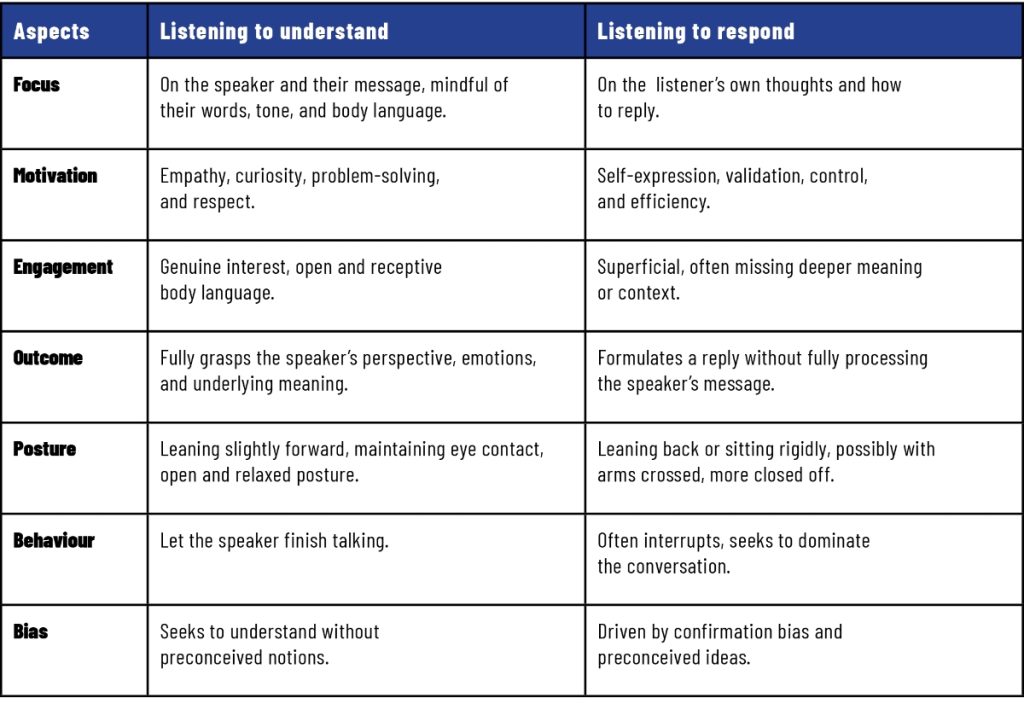

TAKEAWAYS:
When we picture a leader, we often see someone confidently speaking – rallying the team, laying out a vision, and issuing directives. But there’s another side to leadership that’s just as powerful: the ability to listen. Beyond all the talk about vision, strategy, and decision-making, the leaders who truly stand out are those who know how to listen.
Listening leaders don’t just hear words – they understand, empathise, and respond thoughtfully. They build deeper connections, foster collaboration, and guide their teams with clarity and compassion. After years of leading teams and working with various leaders, I’ve learnt that the ability to listen can make or break success. Here’s why:
Building trust starts with listening. When we truly listen, we show that others’ input matters. This simple act can ease workplace anxiety and make people feel valued. Even when I have a clear direction in mind, I find it beneficial to create a space where everyone feels safe to share their ideas. This empowers the team and makes them feel included.
Great decisions aren’t made in isolation, they’re shaped by the diverse voices we bring together. Listening is the foundation of trust, creativity, and ensuring everyone feels part of the journey.
Imagine sitting across from someone who’s genuinely interested in what you have to say – leaning in, making eye contact, and giving you their full attention. This kind of listening makes you feel understood and valued.
On the flip side, think about a time when you spoke to someone who seemed more interested in what they were going to say next rather than truly hearing you out.
The difference between these two experiences can be traced back to how we listen.
When we listen to understand, we create meaningful connections, while listening to respond often leaves communication shallow and disconnected.
To help you reflect on your own listening habits, here’s a table that outlines the key differences between listening to understand and listening to respond.

By being mindful of these differences, you can make small adjustments to become a more empathetic and effective listener, so as to foster deeper and more meaningful connections.

Becoming a better listening leader involves cultivating habits that prioritise understanding over mere reaction. Here are some practical strategies to enhance your listening skills in leadership:
1. Be fully present
2. Reflect and paraphrase
3. Ask open-ended questions
4. Use nonverbal cues
5. Pause before responding
By incorporating these practical tips into your daily interactions, you can become a more effective listener and a more impactful leader.
In leadership, active listening is a powerful tool that fosters trust, collaboration, and effective decision-making. By listening more and speaking less, you empower your team to achieve more together.
So, the next time you’re in a conversation, pause, take a breath, and really listen. You might be surprised at how much more you hear – and how much more effective you become as a leader.
Christina Lim is Founder and Chief Strategist of advisory firm Chrisspeak Pte Ltd. She is the author of Not A Marketing Textbook: Practical building blocks to launch and grow your business, available on Amazon.com.